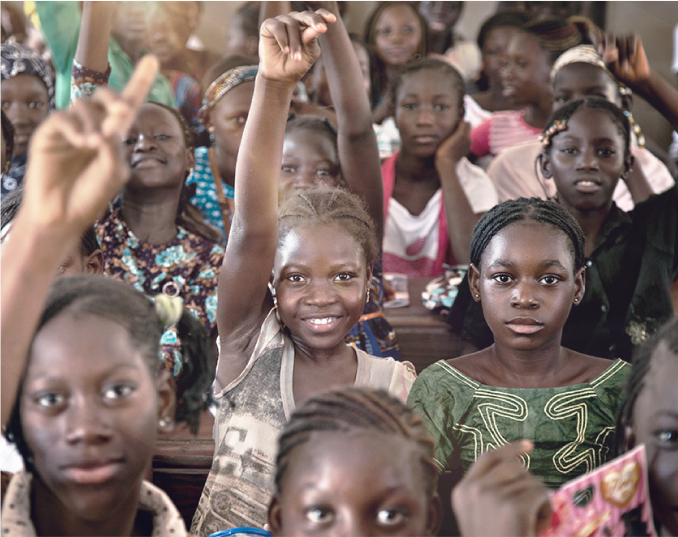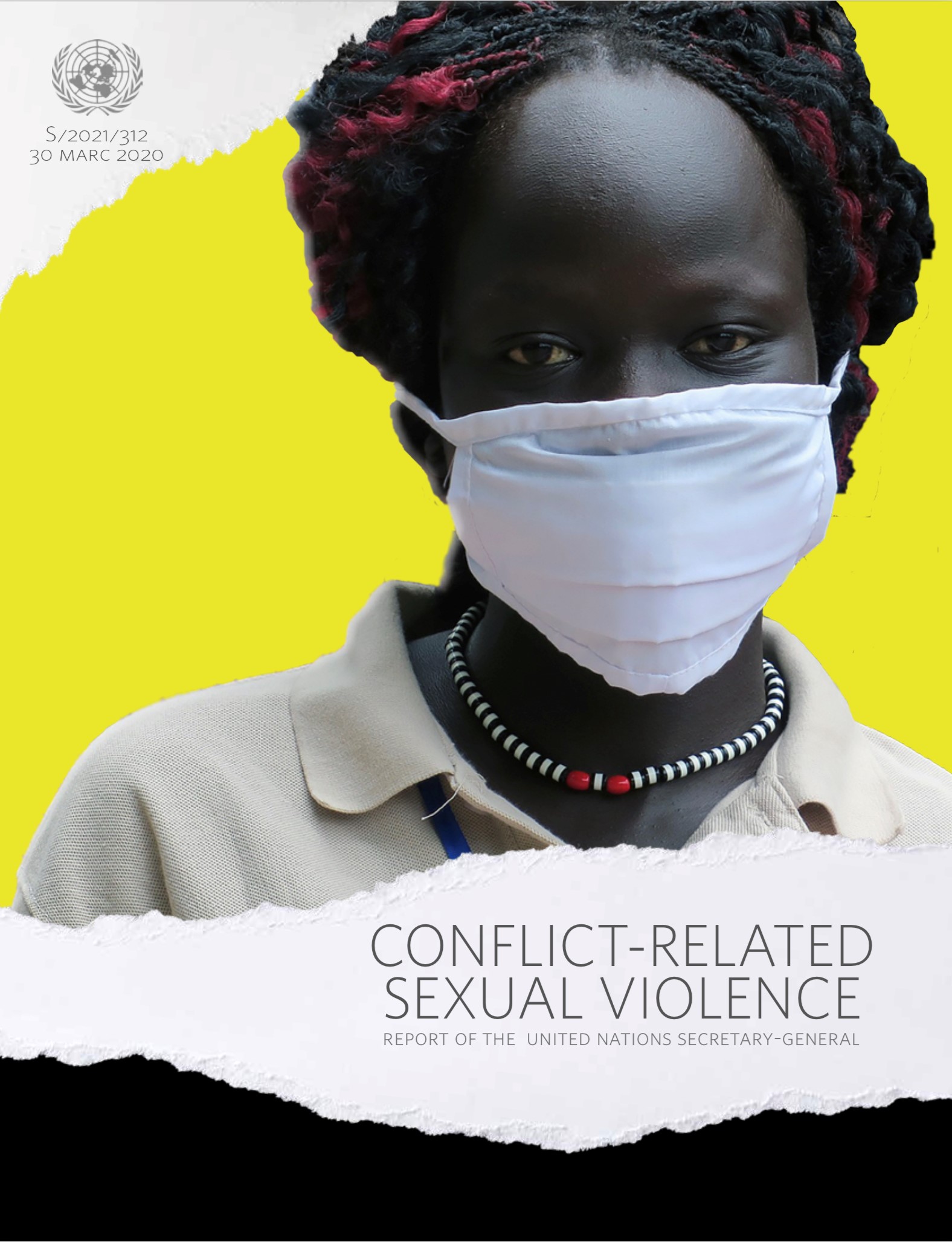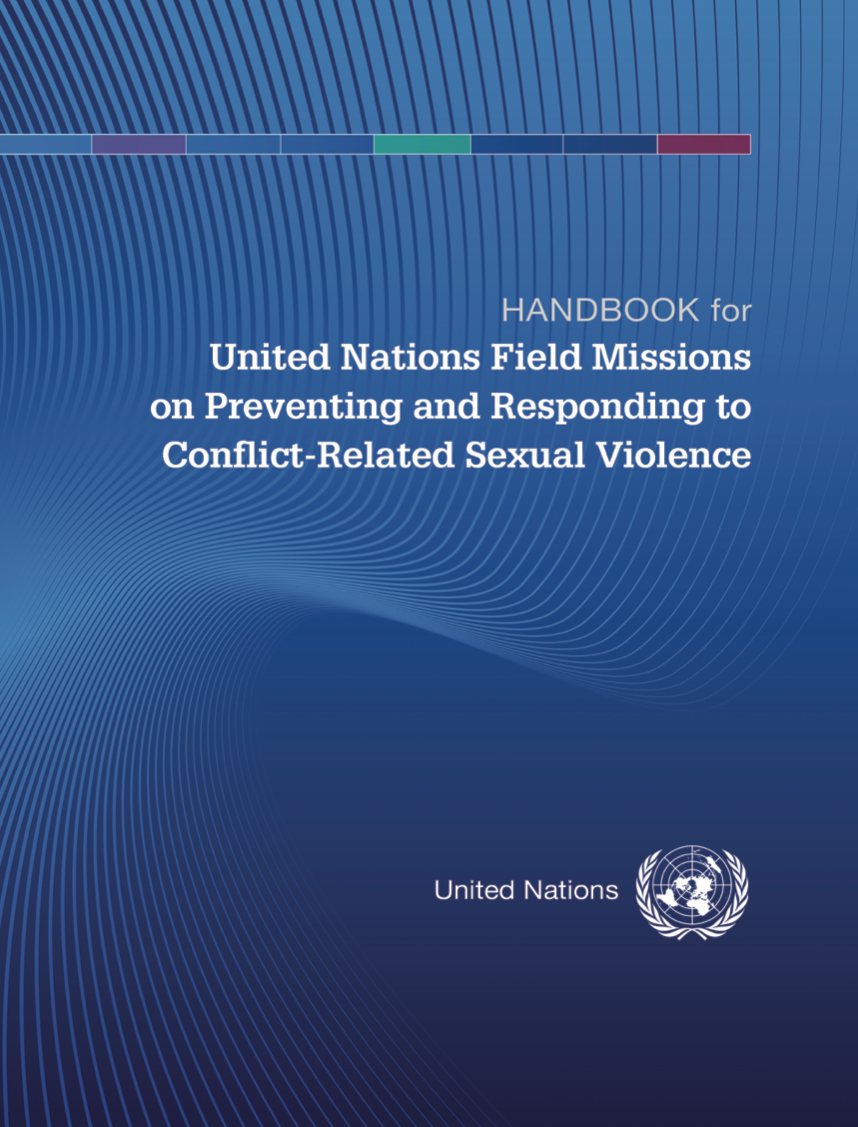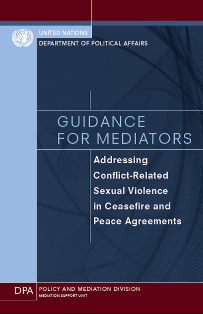December, 2021 | Author: United Nations
Conflict-Related Sexual Violence
With the aim of enhancing conflict-related sexual violence prevention and response as part of peace and political efforts, the Gender Peace and Security and the Mediation Support Units are addressing conflict-related sexual violence as a priority issue across relevant peacemaking contexts, and in developing expert guidance on key thematic issues, including on designing ceasefires, undertaking local mediation efforts and mediation around natural resources.
Addressing Sexual Violence in Conflict in Ceasefire and Peace Agreements
In today’s violent conflicts, civilians continue to be deliberate targets of war in contravention of the Geneva Conventions. One of the most devastating forms of violence waged against civilians is conflict-related sexual violence. A form of gender-based violence, women and girls disproportionately bear the brunt of conflict-related sexual violence, although men, boys and LGBTI persons are also targeted.Conflict-related sexual violence is as old as war itself. It has been used as a method of warfare for time immemorial and in conflicts ranging from World War II to Bosnia, the Democratic Republic of Congo to Colombia, Myanmar to the Syrian Arab Republic and Iraq to Sudan. It is a grave human rights violation that is used as a tactic of war and terrorism to displace populations, traumatize communities, undermine ethics, cultural family and community cohesion and violate women’s reproductive rights. Highly effective, its use can instill fear in communities, trigger acts of vengeance and renewed violence, undermine peace and mediation efforts, and cause stigma and isolation, health, psychological and reproductive trauma, and intergenerational educational, economic and political impacts for survivors and their families.
Depending on the circumstances of an offense, conflict-related sexual violence can constitute a war crime, crime against humanity, act of torture, or constituent act of genocide, under the Rome Statute of the International Criminal Court. The Security Council has recognized in a series of resolutions sexual violence, when used as a method or tactic of war or terrorism, to constitute a threat to international security and an impediment to peace. In recognition that the effective prevention, deterrence and response to conflict-related sexual violence requires political leadership and accountability, and a survivor-centered approach, DPPA has prioritized addressing conflict-related sexual violence as a fundamental part of its women, peace and security and mediation work.
The United Nations requires its mediators to address conflict-related sexual violence. To this end, in 2012, the gender team, then part of the Mediation Support Unit, in the Policy and Mediation Division of the now Department of Political and Peacebuilding Affairs (DPPA) issued Guidance for Mediators: Addressing Conflict-Related Sexual Violence in Ceasefire and Peace Agreements.
Key principles include an obligation to engage parties in discussing the issue and to work towards firm commitments to cease all acts of conflict-related sexual violence. The guidelines also require that conflict-related sexual violence be included in the definition of acts covered by a ceasefire, be monitored alongside other potential violations of ceasefires, and are excluded from amnesty provisions.

Implementing DPA's 'Guidance for Mediators on Addressing Conflict-Related Sexual Violence'
Central African Republic: 11 January 2013 Ceasefire Agreement and Declaration of Principles
A December 2012 country-wide offensive, launched by factions of Central African armed groups under the rebel coalition "Seleka", was eventually halted through the initiation of dialogue in Libreville, Gabon, and a signed Ceasefire Agreement and Declaration of Principles.
As part of the Department of Political Affairs’ efforts in providing mediation-related support to the crisis, the 11 January 2013 Ceasefire Agreement and Declaration of Principles contain provisions that:
Require the immediate halt of sexual violence by the conflicting parties.
Make sexual violence a prohibited act in the definition of ceasefire.
Require that sexual violence is addressed in a programme of urgent priority agreed to by the parties for the consolidation of peace.
Videos
Experts Welcome New Guidance
Bosnia: Healing the Wounds of War


